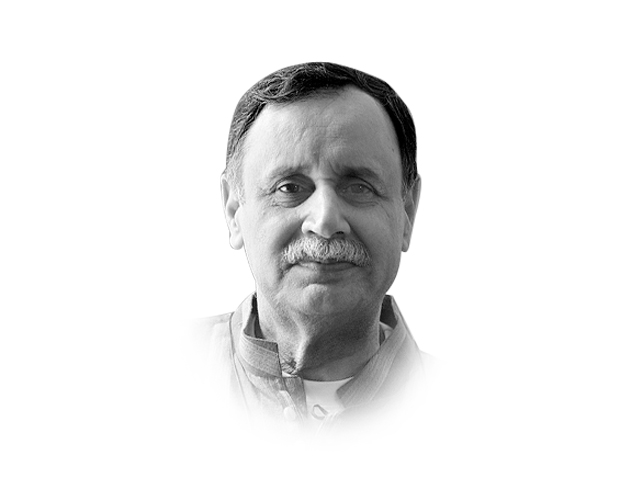

Increasingly, it appears to be a foregone conclusion that the state has abandoned its responsibility to protect the life and liberty of its citizens. Instead it has opted to protect the territorial integrity of Saudi Arabia at all costs. If the Islamic Republic wishes to say goodbye to violence and militancy, its first act must be to reverse the order of its priorities.
The second act must be to disband and stop the active patronage of militants — both religious and political. Hanging a lowly operator after 18 years and not touching those who planned and ordered the killing gives a clear message that the rulers are themselves accomplices of a broader militant consortium. The ruling elite support countless well-armed private militias, violating Article 256 of the Constitution (that prohibits all private armies). In fact, it is considered a ‘democratic’ right and a fashion statement. The state ought to have learnt a lesson from the recent events in Badin, where the entire district police was rendered helpless when pitted against a single private militia.
The third act of our leaders ought to be to reform the police and disconnect it from the clutches of politicians. This ought to be done through an act of parliament. There is no need to create additional police units under fancy new titles. Instead, the 40 per cent deployed exclusively for the protection of a few hundred VIPs must be withdrawn to serve ordinary citizens. The police has been rendered so helpless and dysfunctional that the IG had to request the Sindh High Court to order a wadera to surrender his weapons and disband his private militia. Will the police next be asking the courts to request the thieves not to steal or muggers not to mug?
The fourth act of the state must be to legislate new laws and strike down those who differentiate citizens on the basis of their faith. A state that cannot perform its day-to-day functions must not assume additional responsibilities on behalf of the Lord.
The fifth action requires law-enforcement agencies to adopt a proactive approach instead of reacting after every incident. Eliminating instruments of violence and creating effective monitoring systems are essential to winning the war on terror. Currently, the majority of weapons in the hands of civilians are supported by no licences, fake licences or licences of highly dubious origin. The state has no record of how many licences it issued and to whom. The Punjab government admits that it has no clue of the 900,000 fake licences that it issued. The figure for other provinces is even higher. Khyber-Pakhtunkhwa has recently issued 500 Kalashnikov permits to its doctors, while licences for similar killing machines can be easily obtained for a ‘price’.
No citizen, regardless of his rank or status, must be allowed to possess, carry or display any weapon of any bore — licensed or otherwise. Import, sale and possession of all kinds of weapons require a complete ban. As long as the state does not understand and implement these basic prerequisites, it can be sure that whatever else it might do, the results will not be any different.
Published in The Express Tribune, May 22nd, 2015.
Like Opinion & Editorial on Facebook, follow @ETOpEd on Twitter to receive all updates on all our daily pieces.













COMMENTS (2)
Comments are moderated and generally will be posted if they are on-topic and not abusive.
For more information, please see our Comments FAQ